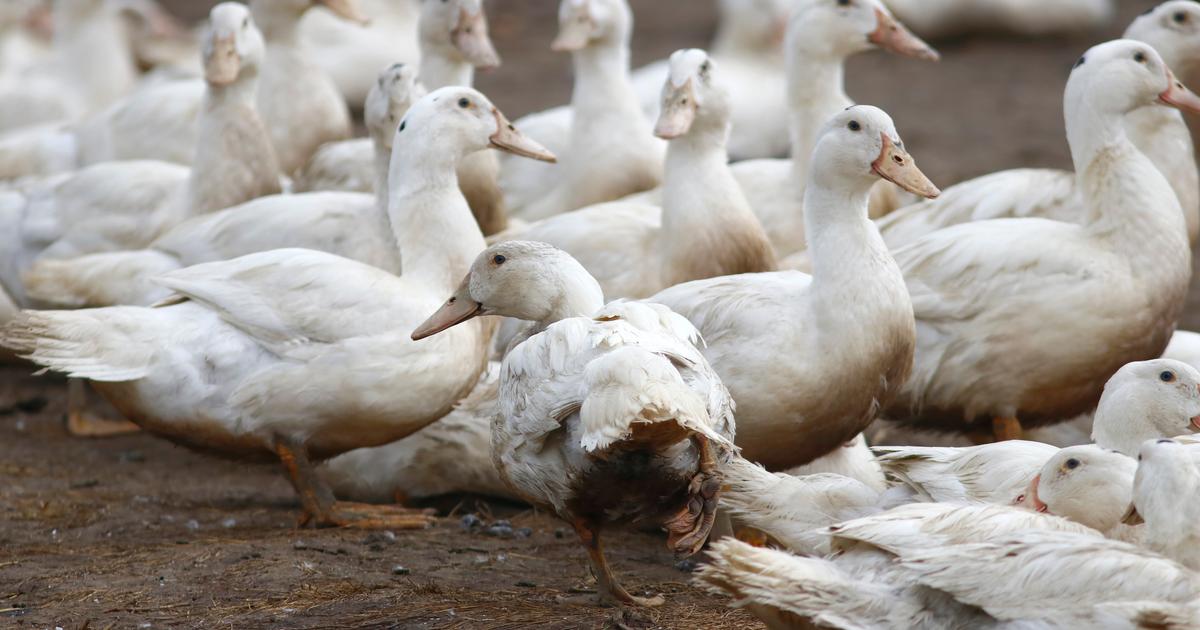YouTube suspends Sky News Australia 0:45
(CNN) -
A year and a half after the first cases of COVID-19 were identified, many countries in the Asia-Pacific region appear to be back where they started.
As Brits hit the nightclubs after a long winter of coronavirus restrictions, millions of people in Australia and China are once again locked up. The health systems of Malaysia, Thailand and Indonesia are overwhelmed. And countries like Fiji, a Pacific island nation that had only reported a handful of cases last year, are now battling large outbreaks.
For some it is difficult to understand why the Asia-Pacific region is being hit so hard.
Many countries in Asia and the Pacific became hermit nations, closing borders to almost all foreigners, imposing strict quarantines for arrivals, and introducing aggressive test-and-trace policies to detect any cases that escaped their defenses.
They lived by these strict border rules so that cases could be reduced to zero and keep people safe.
Advertisement showing covid patient out of breath sparks backlash in Australia as country battles delta variant
An announcement about covid-19 in Australia causes a stir 0:42
Cases increase in China, Australia and New Zealand
The strategy worked until the highly contagious delta variant arrived.
Now the new outbreaks are calling into question the covid strategy of having zero cases favored by China and Australia, sparking a broader debate about how sustainable the approach is.
advertising
What's different about the delta variant?
This is what is known
In the Australian state of New South Wales, where Sydney is located, authorities have said that hitting a 50% vaccination rate could be enough to begin easing the strict lockdown, a departure from the country's previous attempts to reduce cases to zero.
In China, where a handful of cases can lead to massive testing, a growing number of public health experts are favoring a mitigation approach, rather than zero tolerance, according to Huang Yanzhong, senior global health researcher at the Council on Foreign. Relations.
The move away from the 'covid zero' approach is one that other territories like New Zealand and Hong Kong will likely have to do eventually, experts say: They cannot remain isolated from the world forever.
Hong Kong has confirmed around 12,000 cases since the start of the pandemic, while New Zealand has confirmed just over 2,880 cases, and none have currently confirmed local cases, according to their respective authorities.
"The zero covid strategy has obviously been successful in some parts of the world over the past 18 months. I don't think anyone wants it to be the future," said Karen A. Grépin, associate professor at the School of Public Health at the University of Hong Kong.
"The choice now is: when do you want to start letting people die? It will not be a perfect transition, there will be parts of the population that will catch it and die."
Hospitalizations increase in southern US 1:04
Did China and Australia Take the Right Approach?
While COVID-19 was widespread in Europe and the US, countries like China and Australia took an elimination approach: they wanted zero local COVID-19 cases.
The strategy had costs.
Tourism-dependent countries like New Zealand and the Pacific Islands, for example, saw their travel industries take a big hit.
Thousands of Australians were unable to return due to limited flights and quarantine slots, and Australians were unable to go abroad without an exit visa.
But there was also a great benefit.
China and Australia never saw the same catastrophic outbreaks that hit the US and the UK.
And until a few weeks ago, life had largely returned to normal, with people gathering for music festivals and sporting events.
"Asia-Pacific countries, in general, have had an incredibly successful year and a half responding to COVID," Grépin said.
"It would be very difficult to say that the strategies adopted in this region were not good."
Singer Tina Arena at the end of the first concert of her National Enchanté Tour on May 2, 2021 in Brisbane, Australia.
Dale Fisher, professor of infectious diseases at Singapore's National University Hospital, said Australia and China's strategies focused on strict border closures and quickly tracking any leaked cases with massive testing.
But those approaches have been severely challenged by the delta variant, which is estimated to be as transmissible as chickenpox, and is between 60% and 200% more contagious than the original strain first identified in Wuhan.
Exclusive: US intelligence agencies examine genetic data from Wuhan laboratory in search of covid-19 origins
"I think (China and Australia) overestimated the integrity of their borders," Fisher said.
"It may not have been such a big problem with the Wuhan version. But then you have something much more transmittable and any gap is exposed."
When the delta variant arrived in Australia, it exposed a major flaw in the country's strategy: slow vaccination.
While other countries made a frenzy of vaccination earlier this year, Australia's leader seemed in no rush.
The most relevant data about the variant delta 6:13
"We have ... a front row seat to the deployment of vaccination in many other countries where they have had to (implement it) due to their urgent crisis situation," Australian Prime Minister Scott Morrison said in March.
"And the learnings from that have been taken into account."
As of Sunday, only 17% of Australia's population of 25 million people had been fully vaccinated, well below the 58% or 50% of the United Kingdom or the United States, which means that there is little immunity in the community to stop the spread of the delta variant.
"(That) was a big mistake," said Alexandra Martiniuk, a professor at the School of Public Health at the University of Sydney.
"So we are stuck in this position (in Australia) where there are very few vaccinated people and a very dangerous variant."
Can a zero covid approach work?
Chinese authorities have cracked down on domestic transportation and implemented massive tests after more than 300 cases were detected in more than two dozen cities across the country.
They are familiar strategies in China, and they will likely work again, said Ben Cowling, professor of Infectious Disease Epidemiology at the University of Hong Kong.
"For this outbreak, I think they will be zeroed out pretty soon, but it illustrates the risks of covid even in a zero covid strategy," Cowling said.
"This will not be the last outbreak, there will be more outbreaks in the coming months."
China confines thousands over 1:57 delta variant outbreak
For months, the covid zero strategy has worked well.
While other countries have struggled with overburdened healthcare systems and high death toll, China and Australia have reported just 4,848 and 939 deaths, respectively.
That allowed them to resume normal life within their borders and meant that their economies have been less affected.
In the long term, however, many experts think that a zero covid strategy is not sustainable.
Over time, all countries will want to re-open themselves to the world, and when they do, they may have to accept that some people are likely to get sick - a difficult change in Asia-Pacific countries used to keeping the virus out. completely.
"Unless you are prepared to isolate yourself from society forever, you will have covid in your country. So it's a question of when you let it in and when you live with it," Fisher said.
A difficult approach
That change could be politically difficult.
In China, for example, officials and state media have praised the country's strategy and its success as a sign of Chinese superiority, said Huang of the Council on Foreign Relations.
The government would have to justify its decision if it goes from a zero covid approach to a mitigation one, he said.
"This containment-based approach remains popular with the Chinese population, in a way that reflects how it has become so internalized among the Chinese people. They accepted it as the only effective approach to deal with the pandemic," he said.
"So we are talking not only about changing the incentive structure of government officials, but also about changing people's mentality, to prepare them for a new strategy."
But ditching the zero covid strategy isn't something Australia and China should necessarily be thinking about right now, Grépin said.
Sinovac vaccine is only 50.38% effective 2:25
When more than 80% of people are vaccinated, countries can loosen restrictions at borders, Fisher said.
China uses homegrown vaccines, including Sinovac, which was around 50% effective against symptomatic COVID-19 and 100% effective against severe disease, according to trial data submitted to WHO, and Sinopharm, which it has an estimated efficacy for symptomatic cases and hospitalization of 79%, according to the WHO.
That's lower than the Pfizer / BioNTech and Moderna vaccines, which are more than 90% effective against symptomatic COVID-19.
In China, additional doses may need to be added to boost immunity, Grépin said.
See on this map which countries have already approved a third dose of the covid-19 vaccine
Opening the borders too soon could mean that there will be cases of "death against which they fought so hard," he added.
Wuhan celebrates music festival 0:45
The covid-19 crisis is not over yet
The collective experience of China and Australia also highlights the risk that other countries with strict border restrictions may not be able to keep the delta variant, or another variant, out forever.
Fisher said delta outbreaks would likely occur in other countries that have not experienced them so far, such as New Zealand.
Like Australia, New Zealand and Hong Kong have comparatively low vaccination rates, with 16% and 39% respectively fully vaccinated as of Sunday.
If the delta variant enters, they are also vulnerable to flare-ups.
"There should be the same urgency to vaccinate when you don't have COVID because it's just a matter of time, and we know the social and economic impact when you have to block it and do massive testing in response," Fisher said.
He recommended maintaining some restrictions, such as wearing masks indoors, even when a country had sealed borders and no local cases were reported.
The story of how a small town outbreak helped change the CDC's mask guide
"All countries should pretend that there are cases on their borders, and at least have masks in closed places, limit meetings," he said.
"It sure bothers people, but I can tell you, when you have a case, suddenly life is so much easier."
They reinforce anticovid-19 measures in the United States 2:57
Countries needed to keep learning from other countries about how to handle the pandemic, Fisher added.
"If anyone thinks this is over, they are wrong," Fisher said, "Everybody has to face it and live with it one day, and it is not over yet for any country."
CNN's Jadyn Shum, Kristie Lu Stout, and Nectar Gan contributed to this report.
Covid-19















